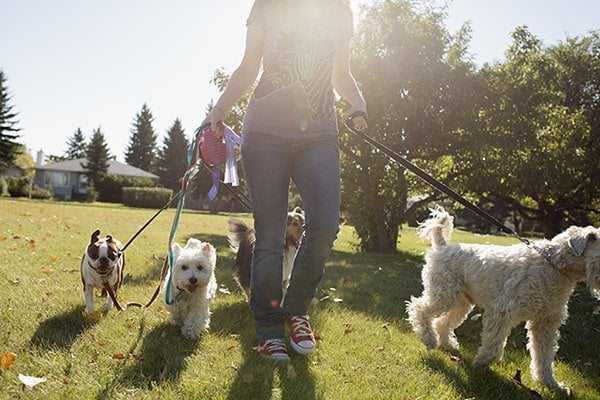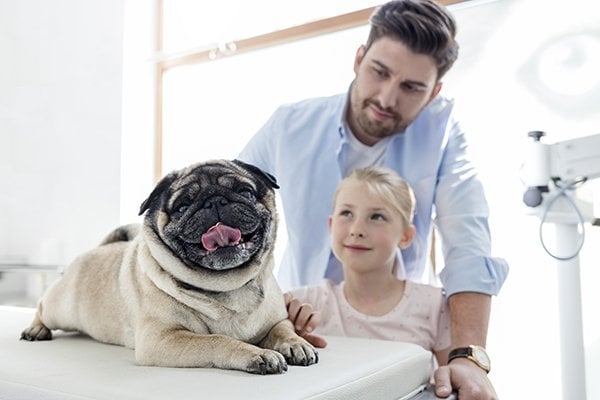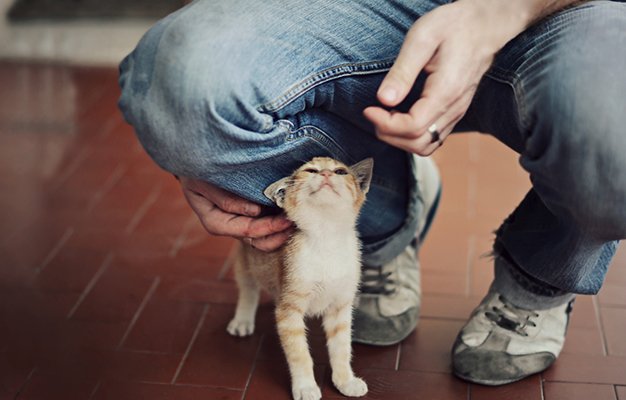*iSelect’s partnered with Choosi Pty Ltd to compare a range of pet insurers and policies. Not all policies are available at all times or in all areas. Our advice on this website is general in nature and does not consider your situation or needs. Consider if any advice is appropriate for you before acting on it. Learn more.
Get The Facts On Pet Insurance
What is pet insurance?
Pet insurance is designed to help cover unexpected veterinary expenses when your pet is sick or injured. But you can also purchase an individual policy for your pet.
What does pet insurance cover?
Like with most insurance policies, you can choose your level of cover. The varying levels of pet insurance can include accidental injury or illness. Your policy might also include desexing, microchipping and annual vaccinations. Some providers even cover dental procedures.

What isn’t covered when it comes to pet insurance?
Pet insurance policies don’t usually provide cover for things like pre-existing conditions that your pet experienced before you took out the insurance or during the waiting period, behavioural problems, pregnancy, grooming and food and diet products and services.
What is dog insurance?
Dog insurance, also known as pet insurance, helps you cover the cost of an unexpected trip to the vet. It can give you peace of mind when your four-legged friend is sick or injured, and reduce some of the financial strain.


What is cat insurance?
Cat insurance, also known as Pet Insurance, helps reduce the financial stress of any emergencies or unexpected trips to the vet when your cat is injured or ill. You’ll usually need to pay the bill upfront, then your provider can reimburse you.
Select cover for your pet from a range of brands through Choosi.*
Pets can be like members of the family, and when they’re sick or injured, we want to take care of them. Unfortunately, vet bills and medical treatment costs can add up, especially if surgical or hospital care is needed. Pet insurance can give you peace of mind and reduce some of the financial burden when your pet needs help.

Pet Insurance FAQs
What’s pet insurance?
How much is pet insurance in Australia?
The cost of pet insurance varies based on the type of cover you select. It also depends on a number of other factors which can include the breed and age of your pet.
How much is pet insurance for a dog?
The cost of pet insurance for dogs can be influenced by several factors, which generally include the level of cover you select, where you live, as well as the age and breed of your dog.
In addition to this, older pets and some premium breeds typically attract a higher premium. This is because they’re more susceptible to some health conditions. iSelect in partnership with Choosi offer a range of covers, some which can offer cover for your dog if they’re under 16 years of age at the time of policy commencement.
What’s the best pet insurance for dogs?
Unfortunately there is no “best” pet insurance policy as this depends on your requirements. As with most insurance products, you may decide to consider the premiums, but also the cover factors such as:
- What the maximum benefit limits are
- What percentage of eligible vet bills are covered
- If any excess is payable
- What conditions are covered
- If there are any waiting periods
- Up to what age you can obtain cover for your dog
- What exclusions apply
Should I consider pet insurance?
If you have a pet, or you’re thinking of getting one, then pet insurance could be a way to help you afford treatment when your pet needs it. Vet bills can cost thousands of dollars, so having pet insurance can offer peace-of-mind by helping you cover a portion of any eligible vet bills and lessening your out-of-pocket costs.
Where can I get pet insurance?
iSelect in partnership with Choosi can help you compare a range of pet insurance products for your pet dog or cat, making it easier for you to select cover. You can compare and purchase pet insurance online or over the phone.
Which pet insurance is best?
As mentioned earlier, there is no “best” insurance policy as this is subjective, and depends on your requirements. As with most insurance products, You may decide to consider the premiums, but also the cover factors such as:
- What the maximum benefit limits are
- What the sub-limits are
- If any annual condition limits apply
- What percentage of eligible vet bills are covered
- If any excess is payable
- What conditions are covered
- If there are any waiting periods
- Up to what age your pet can obtain cover
- What exclusions apply
How much is pet insurance for cats?
The cost of pet insurance for cats can be influenced by several factors, which generally include factors such as the level of cover you select, where you live, as well as the age and breed of your cat.
Do all vets accept pet insurance?
Generally, pet insurance works by allowing you to claim back a portion of the eligible vet bill which is then reimbursed back to you should you make a successful claim. Therefore, you’ll usually need to settle the vet’s bill upfront, and then claim back from your insurer.
What does pet insurance cover?
Of the pet insurance products that iSelect can compare in partnership with Choosi, all levels of cover are for both accidental injury and illness, provided they were not pre-existing at time of policy purchase. Accidental injury usually covers broken bones following a car accident, scratches and bites from fighting, and sometimes even snake bites. Illness cover can include a variety of certain illnesses and diseases diagnosed by a licensed vet. Depending on the policy this can include cancer, infectious diseases, hereditary conditions, and some skin conditions. However, it’s important to always check the relevant Policy Booklet (which contains the Product Disclosure Statement, Policy Terms & Conditions, and Financial Services Guide) for any inclusions, limitations and exclusions in the policy. There are also waiting periods, benefit limits, and sub-limits (and depending on the policy, annual condition limits) that apply.
You might be interested in…

Pet insurance is designed to help cover unexpected veterinary expenses when your cat or dog is sick or injured. Some home insur…
Read More
If you have a pet, you're probably going to make a trip to the vet at some stage. It might be a routine trip for your cat’s…
Read More
On average, owning a dog can set you back approximately $1,475 per year, while a cat is slightly cheaper at around $1,029 per y…
Read More
Whenever your dog needs medical treatment, medication or veterinary care, there’s a cost involved. Without pet insurance, you…
Read More
Cat insurance helps reduce the financial stress of any emergencies or unexpected trips to the vet when your cat is injured or …
Read More*iSelect’s partnered with Choosi Pty Ltd (ABN 15 147 630 886) to help you compare pet insurance policies. iSelect earns a commission from Choosi for every policy sold through the website or contact centre. iSelect and Choosi do not compare all providers or policies in the market.
Any advice provided by iSelect on this website is of a general nature and does not take into account your objectives, financial situation or needs. You need to consider the appropriateness of any information or general advice we give you, having regard to your personal situation, before acting on our advice or purchasing any policy. You should consider iSelect’s Financial Services Guide which provides information about our services and your rights as a client of iSelect. iSelect receives commission for each policy sold by Choosi.

.svg)
